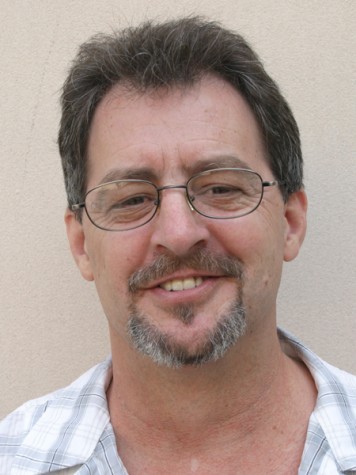In the final California Gubernatorial Debate, candidates Democrat Jerry Brown and Republican Meg Whitman seized the final opportunity to convince the voting public of who should be the next governor of California.
The debate was held Oct. 12 at Dominican University in San Rafael and was moderated by Tom Brokaw, anchor and managing editor of NBC Nightly News.
The topics outlined for the debate were the economy and jobs, budget and pensions, immigration, and health care, but the contenders dwelt on highlighting their own track records and attacking each other.
The California fiscal crisis was of primary concern as each candidate offered remedies while attacking the opponent’s.
“I would do my utmost to return authority and decision making to local communities where it’s closer to the people,” Brown said. “One thing I wouldn’t do to compound our budget deficit and our tax unfairness, I wouldn’t totally eliminate the capital gains tax, which what my opponent Meg Whitman wants to do. That cap gains tax benefits mostly millionaires and billionaires and would add $5 to $10 billion to our budget deficit, and a lot of that money would have to come out of our public schools.”
Often during the debate Whitman said she would take steps to create jobs in California. She also presented her experience in business and bashed Brown, who she claimed didn’t have similar experience.
“We have got to get someone in office who knows what the conditions are for small businesses if are to grow and thrive,” Whitman said. “My track record is creating jobs. My business is creating jobs. Your business is politics. You’ve been doing this for 40 years,” she said to Brown.
With the state in a budget deficit, both candidates said they had plans to balance it. Brown proposed starting the budget process in November, returning power to the local level, and cutting the salaries of those in the governor’s office by 10 to 15 percent. Whitman said the size of the government needs to be condensed, and that the public employee pension and welfare systems need to be reformed.
Another issue the contenders were asked to share their thoughts on was Proposition 23, which would suspend the Global Warming Act of 2006, also known as AB32.
Both Whitman and Brown are in favor of AB32, but Whitman proposed a one-year moratorium to “fix it.” She said only 3 percent of jobs are green jobs, while the remaining 97 percent are jobs in various other sectors. Without the one-year freeze, Whitman said the 97 percent of jobs in other sectors could be jeopardized.
Brown said there is no study indicating 97 percent of the working class would be affected by AB32 and a freeze would create regulatory uncertainty. He said the act could actually benefit the economy.
“If you put thousands to people to work, retrofitting buildings so that they don’t burn as much energy that will put people to work here. It’ll save money to consumers . and over the last 30 years it saved Californians over $50 billion.”
Immigration was also dealt with in the hour-long debate. Brokaw posed the question first to Whitman, who said she did not know she had hired an undocumented housemaid until just recently. Brokaw asked how Whitman expects businesses to be held accountable for hiring such workers, if she did not know about one living in her home for nine years.
“This is why we need a very good e-verify system, that allows a business of every size to look at documentation and know whether it is real or not,” she said. “But we have to hold employers accountable for hiring only documented workers.”
Whitman said illegal immigration is a big issue in California, with estimates that $6 to $7 million of the budget going to services for undocumented immigrants. She also supports the creation of a temporary guest worker program and increased border security.
Brown agreed that businesses should be held accountable for hiring undocumented workers and proposed immigration reform at the federal level that would provide a path to citizenship.
The election for the governor of California will be on Nov. 2.


